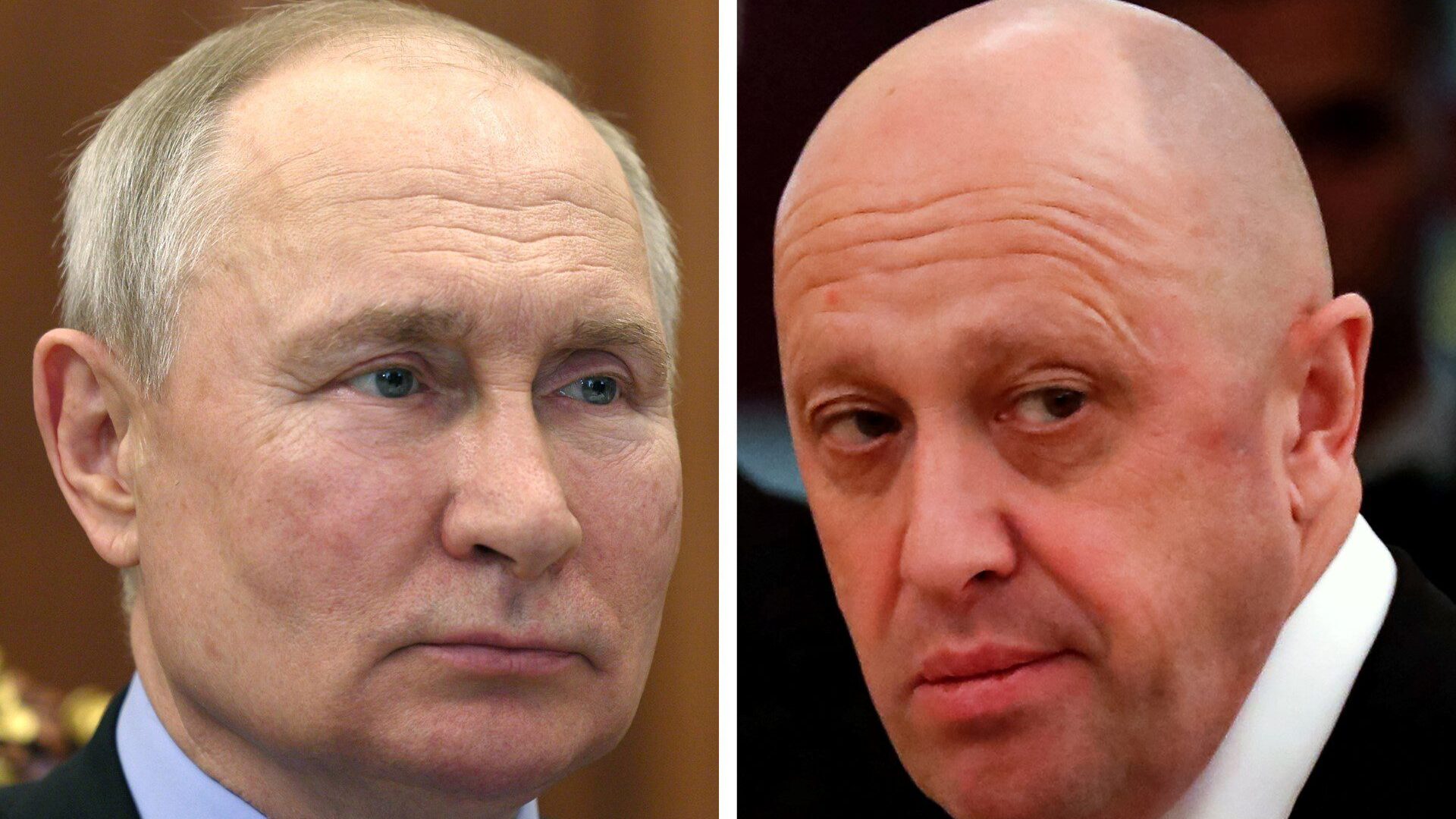
Russian President Vladimir Putin (L) met with Wagner Group chief Yevgeny Prigozhin (R) after the Wagner Group’s march on Moscow, according to Kremlin spokesman Dmitry Peskov.
Photos: GAVRIIL GRIGOROV and Sergei ILNITSKY / SPUTNIK / AFP
Wagner chief Yevgeny Prigozhin and a few dozen senior commanders from the private military contractor (PMC) met with Russian President Vladimir Putin in the Kremlin just days after the group aborted its short-lived march toward Moscow, according to various Russian and Western media reports.
Speaking to the Russian press on Monday, July 10th, Kremlin spokesman Dmitry Peskov told reporters:
Indeed, the president has had such a meeting. He invited 35 people to it. All the commanders of the detachments and management of the company, including Prigozhin himself. This meeting took place in the Kremlin on June 29th. It lasted three hours.
The commanders outlined their version of what happened [on 24 June]. They emphasized that they are staunch supporters of the head of state and the supreme commander in chief… and also said that they were ready to continue to fight for their homeland.
Putin listened to the explanations of the commanders and offered them further options for employment and further combat use.
If the meeting did indeed take place, as Peskov says it did, it suggests that Prigozhin, despite having seemingly brought Russia to the brink of civil war last month, is invulnerable to the Kremlin’s hammer in a way that most simply are not. It also suggests he still wields a degree of power and influence within the country.
After the mutiny on June 24th—which saw Prigozhin and his Wagnerites seize control of key military headquarters in the southern Russian city of Rostov and come within a few hundred kilometers of Moscow—was finally aborted following a deal brokered by Belarusian president Alexander Lukashenko, the Wagner chief was meant to be exiled to Belarus.
However, since he was pictured leaving Rostov, Prigozhin hasn’t been spotted publicly. Last Thursday, July 6th, although Belarusian president Lukashenko said the Wagner chief was in St. Petersburg, Peskov emphasized that the terms of the agreement remained in effect.
The BBC, meanwhile, claims that they tracked Prigozhin’s private jet flying to Belarus at the end of last month before returning to Russia the same evening.
As of today, Prigozhin’s whereabouts remain unclear.
